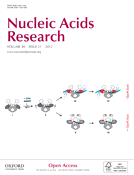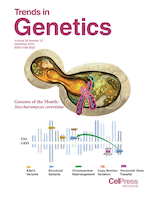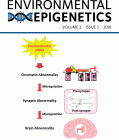
Clinical Epigenetics
Scope & Guideline
Advancing Knowledge in Epigenetics for Transformative Healthcare
Introduction
Aims and Scopes
- Epigenetic Mechanisms in Disease:
The journal covers various diseases where epigenetic modifications play a crucial role, including cancer, cardiovascular diseases, and autoimmune disorders. It emphasizes the exploration of how DNA methylation, histone modifications, and non-coding RNAs influence disease progression and prognosis. - Clinical Applications of Epigenetic Research:
Research published in the journal often focuses on the clinical implications of epigenetic findings, including the development of biomarkers for early disease detection, treatment responses, and personalized medicine approaches. - Methodological Advances in Epigenetics:
The journal highlights innovative methodologies in epigenetic research, including advanced techniques for DNA methylation analysis, epigenome-wide association studies (EWAS), and the integration of multi-omics data to enhance understanding of complex biological systems. - Environmental and Lifestyle Influences on Epigenetics:
There is a significant focus on how environmental factors, such as diet, pollution, and lifestyle choices, affect epigenetic modifications and their subsequent impact on health outcomes. - Intergenerational Epigenetic Effects:
The journal explores how epigenetic changes can be transmitted across generations, influencing the health and disease susceptibility of offspring, thereby linking maternal and paternal exposures to later-life health outcomes.
Trending and Emerging
- Epigenetics and Aging:
A significant trend is the exploration of epigenetic changes associated with aging and age-related diseases. Research focusing on epigenetic clocks and their predictive value for longevity and health outcomes is gaining momentum. - Cancer Epigenetics and Therapeutics:
The journal increasingly emphasizes the role of epigenetics in cancer biology, including the identification of epigenetic biomarkers for diagnosis and prognosis, as well as novel therapeutic strategies targeting epigenetic modifications. - Impact of Lifestyle and Environmental Factors:
There is a growing body of research investigating how lifestyle choices (such as diet, exercise, and smoking) and environmental exposures (pollution, chemicals) influence epigenetic modifications, linking these changes to chronic diseases. - Machine Learning and Epigenomics:
The integration of machine learning techniques to analyze complex epigenomic data sets is an emerging area of focus. This trend highlights the innovative use of computational methods to identify patterns and predict clinical outcomes based on epigenetic profiles. - Epigenetics in Mental Health:
Recent publications indicate a rising interest in the role of epigenetics in mental health disorders, including depression and anxiety, exploring how epigenetic modifications affect brain function and behavior.
Declining or Waning
- Basic Research on Epigenetic Mechanisms:
There appears to be a waning interest in purely basic research focused solely on the fundamental mechanisms of epigenetic regulation without direct clinical implications. The trend is moving towards studies that translate basic findings into clinical applications. - Single-Factor Studies:
Research that investigates the role of single epigenetic factors (such as individual genes or specific histone modifications) in isolation has become less prevalent. There is a growing preference for multi-factorial approaches that consider the interplay of various epigenetic and environmental influences. - Animal Models in Epigenetics:
Studies relying heavily on animal models to investigate epigenetic phenomena, particularly in the absence of human clinical relevance, have decreased. The focus is shifting towards human studies that provide direct insights into clinical applications. - Epigenetics in Rare Diseases:
Research related to the epigenetic aspects of rare diseases has seen a decline. The journal is increasingly prioritizing studies with broader implications and relevance to more common health conditions.
Similar Journals

Human Genomics
Elevating Genomic Research to New HeightsHuman Genomics, published by BMC, is a leading open-access journal dedicated to advancing the field of genomics and its applications in health and disease. Since its inception in 2003, the journal has provided a vital platform for researchers to disseminate groundbreaking findings related to genetic research, contributing significantly to areas such as Drug Discovery, Genetics, Molecular Biology, and Molecular Medicine, as reflected in its Q1 and Q2 quartile rankings throughout 2023. With an ISSN of 1473-9542 and an E-ISSN of 1479-7364, Human Genomics not only delivers high-quality, peer-reviewed research but also ensures accessibility to a broader audience, empowering professionals, students, and academics to stay at the forefront of genomic science. Through its rigorous editorial standards and impactful publications, the journal fosters a collaborative environment for innovative research across the globe from its base in the United Kingdom. By promoting open access since its launch, Human Genomics continues to enhance the visibility and impact of genetic studies, making it an essential resource for anyone involved in the rapidly evolving field of human genomics.

GENOME BIOLOGY
Fostering innovation in genome research and knowledge exchange.GENOME BIOLOGY is a premier, peer-reviewed journal published by BMC, focusing on the rapidly evolving fields of genomics, molecular biology, and bioinformatics. Accessible as an Open Access journal since 2000, it aims to disseminate high-quality, cutting-edge research that contributes to our understanding of genome biology's intricate mechanisms. The journal boasts an impressive impact, ranking 8th in Agricultural and Biological Sciences and 9th in Biochemistry, Genetics and Molecular Biology, highlighting its significance among scholars, professionals, and students alike. With a commitment to facilitating the exchange of invaluable scientific knowledge, GENOME BIOLOGY provides an important platform for discussions on evolutionary biology, genetic systems, and cell biology, contributing to the advancement of these dynamic disciplines.

NUCLEIC ACIDS RESEARCH
Illuminating the Pathways of Nucleic AcidsNUCLEIC ACIDS RESEARCH, published by Oxford University Press, is a premier peer-reviewed journal in the field of genetics, holding a prestigious Q1 ranking in this domain as of 2023. Since its inception in 1974 and with a converged publication horizon extending to 2024, this journal has established itself as a vital resource for researchers and professionals interested in the molecular aspects of nucleic acids, encompassing DNA and RNA studies as well as their implications in biochemistry and molecular biology. With an impressive Scopus rank of #6 out of 347 in Genetics, this journal is positioned in the 98th percentile among its peers, highlighting its significant impact and relevance in the scientific community. As an open access journal since 2005, NUCLEIC ACIDS RESEARCH ensures wide dissemination of knowledge, promoting collaborative advancements in genetic research. For those looking to stay at the forefront of nucleic acid research, this journal remains an essential publication for accessing cutting-edge findings and innovative methodologies in the field.

TRENDS IN GENETICS
Elevating the Standards of Genetic ScholarshipTRENDS IN GENETICS, published by CELL PRESS, is a leading journal in the field of genetics, recognized for its significant impact on research and advancements in the discipline. With an impressive Scopus ranking of #10 out of 347 in the category of Genetics and a 97th percentile ranking, this journal stands as a premier platform for publishing innovative, high-quality articles that shape the future of genetic research. Since its inception in 1985, TRENDS IN GENETICS has been at the forefront of the genetic sciences, continuously disseminating crucial findings while maintaining a strong commitment to scientific rigor and integrity. Although it does not currently offer open access options, its rigorous peer-review process ensures that only the most relevant and groundbreaking studies make it to publication. Scholars and practitioners in genetics will find this journal to be an invaluable resource for keeping abreast of the latest developments, trends, and methodologies that drive the field forward.

Epigenetics & Chromatin
Leading the Charge in Molecular Biology ResearchEpigenetics & Chromatin, published by BMC, is a leading open-access journal that has been at the forefront of research in the fields of genetics and molecular biology since its inception in 2008. With an impressive Q1 category ranking in both Genetics and Molecular Biology as of 2023, this journal is pivotal for researchers and professionals aiming to explore the complexities of gene regulation and chromatin dynamics. The journal is renowned for its commitment to disseminating high-quality research, featuring diverse articles ranging from original research to comprehensive reviews. It enjoys a significant impact within the academic community, evidenced by its Scopus rankings that place it among the top 30% of journals in Genetics and the top 40% in Molecular Biology. With a dedicated open-access model, Epigenetics & Chromatin ensures that its comprehensive content is readily accessible to researchers globally, fostering collaboration and innovation across the scientific landscape. Located in the UK, the journal continues to attract a diverse audience of scholars and practitioners passionate about understanding the intricate layers of epigenetic regulation.

Environmental Epigenetics
Unraveling the Genetic Threads of Environmental InfluenceEnvironmental Epigenetics, published by Oxford University Press, is a leading open access journal dedicated to advancing the understanding of the epigenetic mechanisms that underpin environmental influences on health and disease. With an ISSN of 2058-5888 and established as an open access platform since 2015, this journal serves as a vital resource for researchers in the fields of genetics, environmental science, and health, offering insights from multidisciplinary perspectives. The journal has gained notable recognition in the academic community, reflected by its impressive Scopus rankings and its classification in the second quartile (Q2) for Genetics and other related disciplines as of 2023. It aims to foster innovative research that bridges laboratory findings and real-world environmental issues, making it an indispensable tool for professionals and students pursuing knowledge at the intersection of genetics, environmental science, and public health. With its commitment to disseminating valuable research findings freely, Environmental Epigenetics stands out as an essential publication for those aiming to understand the significant impacts of environmental factors on genetic expression.

AGING CELL
Exploring the Frontiers of Aging ResearchAGING CELL is a premier peer-reviewed journal published by Wiley, specializing in the rapidly evolving field of aging research and cell biology. Established in 2002 and enjoying an impressive track record as evidenced by its Q1 ranking in both Aging and Cell Biology categories for 2023, the journal has become a vital resource for researchers and professionals alike. With a significant impact factor highlighting its scholarly influence, AGING CELL offers an open access model since 2014, ensuring that groundbreaking research is accessible to the global community. The journal covers a wide array of topics related to the mechanisms of aging at the cellular and molecular levels, making it essential reading for anyone invested in understanding the complexities of aging processes and their implications for health and disease. With a broad international readership based in the United Kingdom and beyond, AGING CELL is dedicated to disseminating high-quality research that impacts scientific understanding and fosters advances in the field.

Epigenomics
Connecting Genes and Epigenomes for a Healthier Future.Epigenomics is a leading journal in the realms of Cancer Research and Genetics, published by Future Medicine Ltd in the United Kingdom. With an ISSN of 1750-1911 and an E-ISSN of 1750-192X, the journal has been an integral part of the scientific community since its inception in 2009, and is set to converge its impactful research publications through 2024. The journal occupies a significant position in its category quartiles as evidenced by its ranking—Q3 in Cancer Research and Q2 in Genetics as of 2023. With Scopus rankings of #138/347 in Genetics and #113/230 in Cancer Research, it demonstrates scholarly excellence and is recognized for its contributions to understanding the role of epigenetic modifications in health and disease. While Epigenomics operates under traditional subscription models, it remains a vital resource for researchers, professionals, and students eager to explore the complex interplay between genes and the epigenome. The journal's innovative approach to epigenetics and its impact on cancer research makes it essential reading for those at the forefront of biomedical research.

BIOCHEMICAL GENETICS
Exploring the Intersections of Science and DiscoveryBIOCHEMICAL GENETICS, published by Springer/Plenum Publishers, is a prominent journal in the fields of biochemistry, genetics, and molecular biology, with a substantial impact on the scientific community since its inception in 1967. The journal holds a significant position within various academic quartiles, ranking Q2 in Ecology, Evolution, Behavior and Systematics, and Q3 in Biochemistry, Genetics, and Medicine (miscellaneous), among others, demonstrating its diverse and interdisciplinary reach. With an ISSN of 0006-2928 and an E-ISSN of 1573-4927, it is recognized for contributing critical research insights and methodologies that drive the fields of biochemical genetics forward. Although it is not an Open Access journal, it provides vital access options and resources for researchers globally, facilitating the dissemination of knowledge across institutions. Positioned within the competitive landscape of Scopus rankings, it maintains respectable standings across its focused areas, making it an invaluable resource for researchers, professionals, and students seeking to deepen their understanding of genetic mechanisms and biochemical processes.

CELLULAR & MOLECULAR BIOLOGY LETTERS
Connecting Ideas, Inspiring Innovations in Molecular BiologyCELLULAR & MOLECULAR BIOLOGY LETTERS, published by BMC, is a premier open-access journal dedicated to disseminating high-quality research in the fields of Biochemistry, Cell Biology, and Molecular Biology. Established in 1996, the journal has emerged as a leader in its domain, boasting an impressive Q1 ranking across three critical categories as of 2023, reflecting its significant impact within the scientific community. With an ISSN of 1425-8153 and an E-ISSN of 1689-1392, it offers accessible research findings to a global audience, having been open access since 2013. Situated in the United Kingdom, at CAMPUS, 4 CRINAN ST, LONDON N1 9XW, the journal continues to serve as a vital resource for researchers, professionals, and students, contributing to advancements in the understanding of cellular and molecular processes. By providing a platform for original research, reviews, and short communications, CELLULAR & MOLECULAR BIOLOGY LETTERS plays a crucial role in fostering dialogue and collaboration within the scientific community.